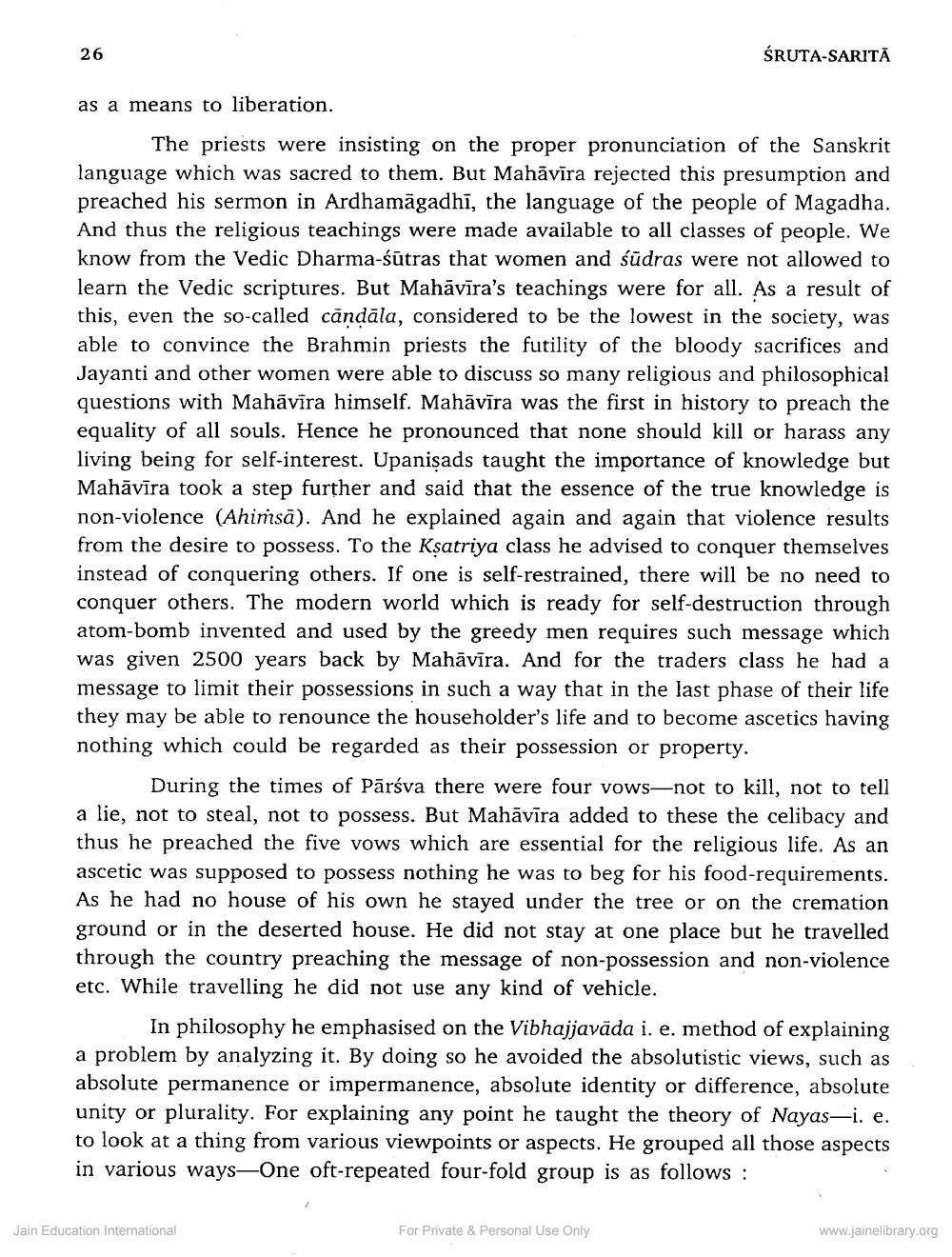________________
26
ŚRUTA-SARITĀ
as a means to liberation.
The priests were insisting on the proper pronunciation of the Sanskrit language which was sacred to them. But Mahāvīra rejected this presumption and preached his sermon in Ardhamāgadhī, the language of the people of Magadha. And thus the religious teachings were made available to all classes of people. We know from the Vedic Dharma-sūtras that women and sūdras were not allowed to learn the Vedic scriptures. But Mahāvīra's teachings were for all. As a result of this, even the so-called candāla, considered to be the lowest in the society, was able to convince the Brahmin priests the futility of the bloody sacrifices and Jayanti and other women were able to discuss so many religious and philosophical questions with Mahāvīra himself. Mahāvīra was the first in history to preach the equality of all souls. Hence he pronounced that none should kill or harass any living being for self-interest. Upanisads taught the importance of knowledge but Mahāvīra took a step further and said that the essence of the true knowledge is non-violence (Ahimsā). And he explained again and again that violence results from the desire to possess. To the Ksatriya class he advised to conquer themselves instead of conquering others. If one is self-restrained, there will be no need to conquer others. The modern world which is ready for self-destruction through atom-bomb invented and used by the greedy men requires such message which was given 2500 years back by Mahāvīra. And for the traders class he had a message to limit their possessions in such a way that in the last phase of their life they may be able to renounce the householder's life and to become ascetics having nothing which could be regarded as their possession or property.
During the times of Pārśva there were four vows—not to kill, not to tell a lie, not to steal, not to possess. But Mahāvīra added to these the celibacy and thus he preached the five vows which are essential for the religious life. As an ascetic was supposed to possess nothing he was to beg for his food-requirements. As he had no house of his own he stayed under the tree or on the cremation ground or in the deserted house. He did not stay at one place but he travelled through the country preaching the message of non-possession and non-violence etc. While travelling he did not use any kind of vehicle.
In philosophy he emphasised on the Vibhajjavāda i. e. method of explaining a problem by analyzing it. By doing so he avoided the absolutistic views, such as absolute permanence or impermanence, absolute identity or difference, absolute unity or plurality. For explaining any point he taught the theory of Nayas-i. e. to look at a thing from various viewpoints or aspects. He grouped all those aspects in various ways—One oft-repeated four-fold group is as follows:
Jain Education International
For Private & Personal Use Only
www.jainelibrary.org




